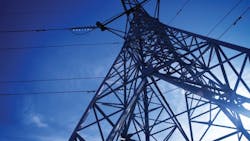DOE Grants $48.4 million to 3 States and 9 Tribal Nations to Modernize the Electric Grid
The U.S. Department of Energy (DOE) has awarded $48.4 million to three states and nine tribal nations to help improve the electric grid to minimize impacts of climate-driven extreme weather and natural disasters and ensure power sector reliability.
The grants, supported by the Bipartisan Infrastructure Law and administered by the DOE’s Grid Deployment Office and part of President Biden’s Investing in America agenda, will help communities access affordable, reliable, and clean electricity.
Considering various factors, the Grid Resilience State and Tribal Formula Grants will award a total of $2.3 billion to States, Territories, and federally recognized tribes, including Alaska Native Regional Corporations and Alaska Native Village Corporations, over the next five years. The States, Territories, and tribes will utilize these funds in projects which generate the greatest community benefit while providing clean, affordable, and reliable energy.
“From remote and rural communities to urban centers, it is essential that every pocket of America has a strong and reliable energy grid that can deploy cleaner, cheaper power to homes and businesses, said U.S. Secretary of Energy Jennifer M. Granholm. “Thanks to the transformative investments in grid infrastructure under President Biden’s Investing in America agenda and the Bipartisan Infrastructure Law, we are preparing the nation for a more resilient, clean energy future.”
Since May 2023, the DOE has distributed more than $455.5 million in Grid Resilience Formula Grants due to President Biden’s Investing in America Agenda.
Alaska received $22 million to reduce the energy burden and the cost experienced by customers within disadvantaged communities or tribal lands, as well as all areas served by the resilience investment, due to inadequate electric grid infrastructure. Blackfeet Tribe of the Blackfeet Indian Reservation was granted $458,123 to enhance the tribal workforce, update failing infrastructure, and advance energy justice by focusing on projects on the reservation with a preference for projects on trust lands.
With $112,439, Chalkyitsik Village will develop battery energy storage for critical facilities and will support addressing the energy burden experienced by low-income tribal members, while Citizen Potawatomi Nation’s funds of $1.3 million will enhance the tribal workforce, allow updates to failing infrastructure, and advance energy justice by focusing on projects on the reservation.
Fort Sill Apache Tribe received $684,000 to address outdated or failing infrastructure and support tribal workforce development to support grid resilience measures. Galena Village (aka Louden Village) received $112,894 to support a continuous supply of power to consumers, reduce outage risks, develop projects and approaches for backup power, and advance partnerships with utilities to develop clean energy.
Match-e-be-nash-she-wish Band of Pottawatomi Indians was granted $183,155 to increase the skilled workforce within the tribe, support good-paying jobs, address capacity limitations, and invest in modernizing the energy infrastructure. Native Village of Port Graham received $181,493 to support battery storage for critical facilities and improve partnerships between the Tribe and utilities to support affordability and improved service to tribal members.
The grant worth $479,021 to Seneca Nation of Indians will be used to increase the skilled tribal energy workforce and invest in modernizing the electric grid, including addressing outdated or failing infrastructure. Summit Lake Paiute Tribe was awarded $115,833 to increase the tribal workforce to support energy resilience and allow investments in grid modernization while increasing electrification in response to evolving needs.
Utah received $12 million to retain a skilled workforce which may include partnering with labor unions and/or educational institutions with a focus on underrepresented or historically excluded workers. $11 million allotted to Virginia will be used to address outdated or failing energy infrastructure equipment and materials like power lines, power poles, transformers, and bucket trucks serving Virginia communities.
